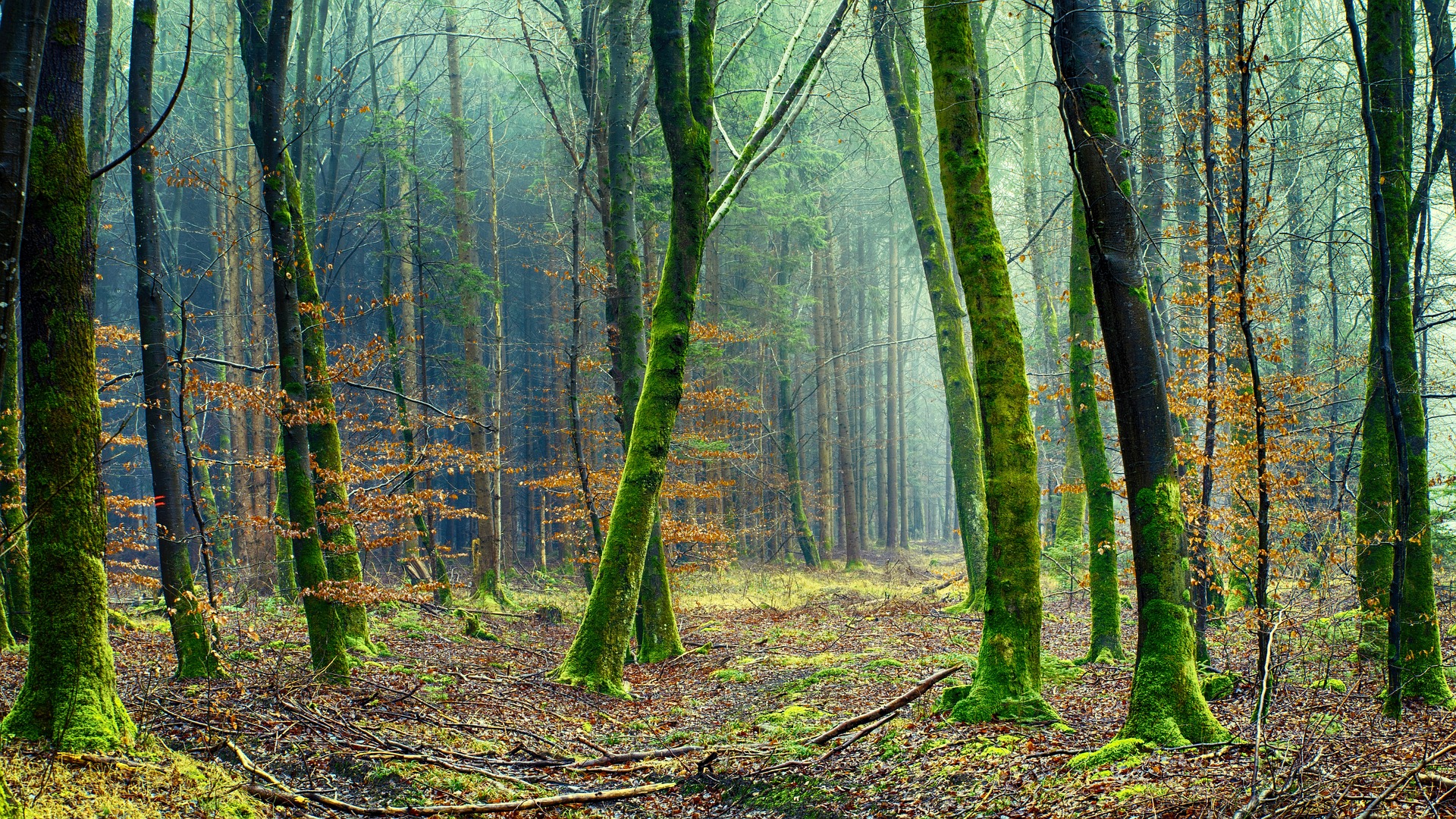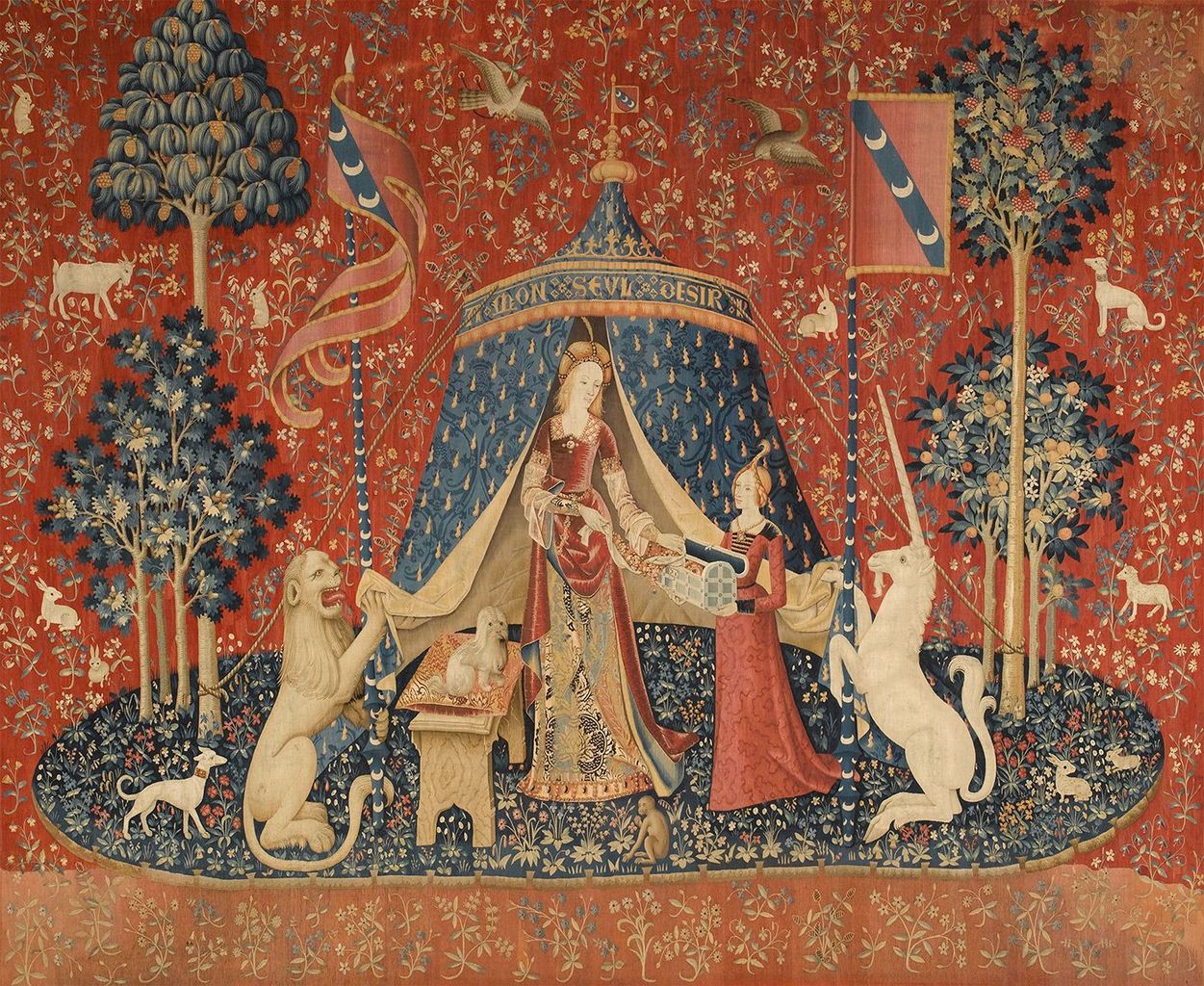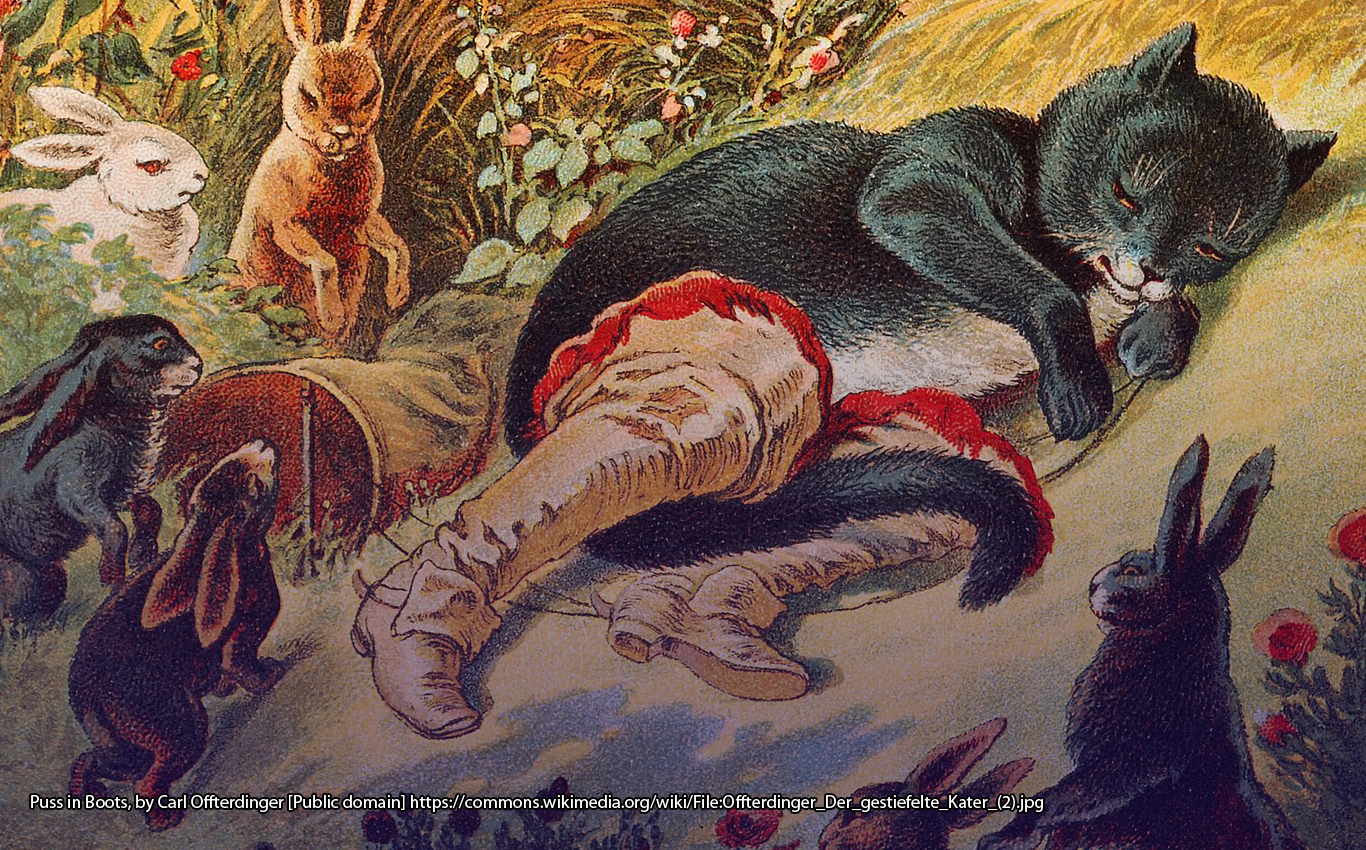Beowulf is an anonymously written long poem originally written in Old English, the language commonly spoken in England in Anglo-Saxon times. It is named after its protagonist, Beowulf, a warrior from Geatland, and tells of his heroic adventures, great strength, courage, and prowess in battle. As well as providing an exciting story, its hero displays all the desired virtues of the Anglo-Saxon aristocracy and warrior class in which it is set, making Beowulf a role model and inspiration for others of the time to follow. The main events of the poem tell how he defeated two monstrous beings, and ends with a battle with a flame dragon that costs him his life.
Beowulf and JRR Tolkien
The poem has influenced many modern works such as The Hobbit, or There and Back Again, and The Lord of the Rings by J.R.R. Tolkien. Fans of Tolkien will recognise many of the motifs and themes in the poem. In 1936, Tolkien gave a distinguished lecture,“Beowulf: The Monsters and the Critics“ which was published in the journal Proceedings of the British Academy and a translation of the poem “Beowulf” was published posthumously. The underlying theme of the poem was the mortality of humankind and the struggle to live in an unsympathetic and often unfriendly world, which inevitably brings defeat and death in due time regardless of fame, status, and achievement. There are many different versions that have been made of the story by many different writers. Presented here is a retelling from the poem of Beowulf’s battle with the flame dragon and his death, influenced by various sources listed below.

Grendel and his Monstrous Mother
In his youth, Beowulf set out leading a company of young men to Denmark to slay the monstrous being called Grendel. Beowulf encountered Grendel in the great hall of King Hrothgar, and successfully defeated and mortally wounded him. Grendel escaped to the lair he shares with his mother at the bottom of a lake and dies. His mother, seeking vengeance, returned to the hall and killed one of King Hrothgar’s earls. Beowulf tracked her back to the lake and, entering the water, sank to the bottom where he found a cave which is the lair of the two monstrous beings. There he fought and killed Grendel’s mother and cut off Grendel’s head, returning with it to the surface as proof of his victory. For slaying the monsters, Beowulf won great praise and was richly rewarded by King Hrothgar of Denmark. Returning to his homeland of Geatland, he was welcomed by King Hygelac, his uncle, who proclaimed him the greatest warrior in the north lands. Songs and stories were made of his encounter with Grendel and his monstrous mother, and his fame spread far and wide.
Beowulf is Crowned King
After King Hygelac was killed in battle and death took his son and heir, Beowulf was crowned King of Geatland. Beowulf’s rule was long and happy and the country prospered. With age, Beowulf grew wiser and more dignified and his people loved him and looked up to him. Despite his fame and past success, he yearned for a chance to once again prove himself in some test of strength and courage. He had won many battles, but nothing appeared to match the slaying of Grendel and his monstrous mother, and he grew restless.
One dark, cold winter’s night, as Beowulf sat in his great mead hall with his earls about him, there came a frantic knocking at the door. On opening the door, the doorkeeper found a ragged stranger, begging to be taken to the king. The man was poorly dressed for a cold winter’s night, and what he did wear was torn and dirty. Not liking the look of the man the doorkeeper forbade him entry. Wiglaf, the son of Weohstan, one of the king’s most faithful earls, came over to see what was happening. On seeing the state of the man and the terrified look upon his face, he spoke to him saying:
“Welcome stranger, the night is bitter and I see you shiver. I know not whether you shiver from the cold or some unknown terror, for I see fear in your face and eyes. Whatever the cause tell us your name and come in and eat and drink with us and explain yourself to our king.”
The Stranger’s Tale
The stranger became confused and his head jerked this way and that. Wiglaf, thinking the man was refusing to say his name and rejecting the hospitality offered, dragged him before the king saying:
“Sire, this man comes knocking at your door this bitter winter night and refuses to say his name and refuses our hospitality. Therefore, I bring him to answer in person to you. What would you have me do with him?”
Beowulf leaned forward and set his keen blue eyes upon him and, looking kindly upon the shivering, ragged stranger, said:
Come now man, have no fear. No one will harm you here. Tell us your name and why you come knocking at the door of my mead hall on this cold night.”
The stranger knelt before Beowulf and said in a trembling voice:
“Sire, I have no name and I have no home, and because of this, these last few days I took to wandering in the wilds in search of a place I could shelter through the winter. This morning I found a great barrow, and seeking shelter I found an entrance that turned into a long tunnel. The tunnel at least offered the potential of shelter, so I followed it until I entered a great wide and high space and found it lit by some unknown light. Looking about I was amazed to see piled all around the sides masses and masses of gold and silver artefacts and many, many chests of precious jewels of all kinds and colours. Indeed, the worth of all this treasure must be beyond measure. Then I realised the light was coming from a sleeping dragon that glowed in the dark, lighting up the cave, and in terror I ran back the way I had come.”

Beowulf leaned forward saying:
“Tell me the truth!”
The stranger did not flinch, but reached inside his ragged cloak and brought out a beautiful gold cup inlaid with gems of all colours that was a most wonderful work to behold, saying:
“See, Lord, this is but a tiny part of a great horde of treasure,” and placed it into the hands of the king.
Beowulf then stood and spoke to his earls saying:
“We have seen by the evidence that this man brings that he is no liar. This cup is surely beyond price and could there be another as beautiful on Earth? The dragon has hoarded the treasures of our forefathers all these long ages and guarded his treasure well. Soon he will know a piece is missing and he will come searching for it and seek vengeance. I ask for eleven followers from you who will come with me to the lair of the dragon. We will slay the beast and take back the treasure of our forefathers that is ours by right. We must put an end to this great terror before it awakens and finds it has been robbed. For those who come there will be bold deeds to be done and more treasure than can be imagined. Who will dare follow me?”
The Dragon Awakens
As Beowulf spoke, back in its lair the dragon awoke and instantly knew a piece of its treasure was missing. Surging down the tunnel and out into the open, it took to the night sky seeking out its treasure and breathing fire upon the homes and settlements of the Geats in vengeance. Then it came to the mead hall of Beowulf. Circling around, it sensed the presence of its missing cup. While the dragon, unknown to the occupants of the hall, circled above in the night sky, Wiglaf stepped forward and volunteered his services to his king’s call.
Beowulf picked the best from the many who begged to be part of this adventure. Just as he named the last warrior a mighty roar shook the roof of the hall and the walls and ground trembled. Immediately he ordered the doors to be secured. It was the custom that the earls, while in the security of the king’s hall, remained unarmed. As red and yellow flames licked under the door, Beowulf cried out to them to escape and seek their weapons and armour to do battle with the beast that now breathed fire at their door. He commanded his chosen companions to meet in the forest, where they would be out of sight, and form a battle plan. Then, calmly and ordered, they disappeared out of the back entrance and placed their loved ones in a safe place before arming themselves for the battle to come. All through the night the dragon wrought havoc across Geatland, burning and scorching villages and towns.
The next morning, Beowulf met his eleven chosen earls in the forest.
“We have to put a stop to the havoc the beast is causing. Therefore, I say we go to the very lair of this monster and slay him before he destroys and sets to flame the whole of Geatland.”
Even as he spoke, the flame dragon knew of the plan and hastened back to its lair to protect its treasure.
Beowulf and the Flame Dragon
Beowulf led his company through the forest, to where the stranger had told them lay the barrow near the coast which was the dragon’s lair. By the time they arrived, night was falling. But at last they came to a broad space clear of trees where a great mound of earth had been raised in some long forgotten time. The trees all around were scorched and blackened, having borne the fury of the flame dragon, and the ground was trampled all over by the great feet of the beast.
Then Beowulf said:
“You must wait here at the edge of the forest and I must go alone to face the dragon. Wait ready to support me should I need it. I am old and now I see as in a dream that this will be my last battle, my final fight. Stand ready.”
Taking up his sword and iron shield, he stepped forward to challenge the flame dragon. As he moved boldly forward, fear took hold of his chosen companions. With the exception of the faithful and loyal Wiglaf, they all ran off into the forest to hide in the darkness amongst the trees. With his mind set upon the entrance of the great barrow, Beowulf knew nothing of their desertion, with his will and powers concentrated on facing the great flame dragon. He could hear it approach, and felt the earth tremble at the tread of its feet. He cried:
“Come out, foul beast! I Beowulf, King of Geatland, son of Ecgtheow, challenge you. Come and try your strength against mine, come out and face me!”
From the edge of the clearing, Wiglaf stood waiting and ready to assist. Inside the barrow the flame dragon heard the challenge, and with a mighty roar and a tremendous burst of red and yellow flame from its mouth, issued forth from the barrow. The beast was massive and covered in grey scales, with a long tail and great feet armed with razor sharp claws. Its red eyes were aflame and its gaping mouth and nostrils spurted fire so hot that Beowulf needed to raise his iron shield to protect himself from the heat.

Holding his sword ready and sheltered by his shield, he rushed forward and struck blow after blow, but his sword was turned away each time by the scaly armour of the dragon. With each breath, flames and heat spurted from the maw and nostrils of the beast, forcing Beowulf to make quick attacks and then retreat out of range. Although the dragon was a massive and powerful beast that could have killed him easily if given the chance, Beowulf used his greater speed, agility, and cunning to circle and weave around it, making himself a hard target to hit. With each quick attack he sought the weak spot that he knew the dragon would have. He moved this way and that, bewildering the beast, making it angry and lash out with its tail. All the time he moved with great agility, ever seeking out that vulnerable soft place to which a well-aimed drive with his sword would bring its death.
The flames from the dragon lit up the night and the stench of its breath caused Beowulf to gag, but still he kept weaving around the dragon making darting strikes. At times the dragon advanced upon him and took the advantage, only for Beowulf to dodge out of its reach and launch an attack on an unguarded part of its huge body before again retreating out of range.
Wiglaf Joins the Fight
Although Beowulf enraged the beast, he found himself struggling. His iron shield was heavy and growing too hot to hold, his sword arm was now weary from wielding blow after blow, and his legs began to give way. The faithful Wiglaf on the edge of the clearing had watched the deadly fight, and now seeing Beowulf’s strength fading, with a great shout ran to his side. Hearing this gave Beowulf renewed strength, and together with shields raised they struck blow after blow. Seeing another enemy further enraged the dragon, and it sent from its mouth a great jet of orange and yellow flame that completely burnt Wiglaf’s wooden shield to ashes. Quickly Beowulf pulled Wiglaf into the shelter of his iron shield, and the two fought on. With Wiglaf now in the fight, Beowulf felt renewed vigour, and struck the dragon a blow on the head that caused his sword to melt before his eyes. This temporarily stunned the beast, but it soon recovered, launching a maddened attack. Seizing Beowulf by the neck with its jaws it sank its poisonous fangs into his throat, causing blood to spurt in all directions.
While the dragon was so occupied, Wiglaf ducked underneath and, seeing a pale spot on its underbelly, drove his sword into it point first with all of his might. The dragon fire flickered and began to fade, and Beowulf was released. Mastering his pain, he drew a long knife he carried at his side, and cut through the dragon’s neck, severing its head from its body before the agony of the poisoned wound brought him to the ground.
Wiglaf ran to Beowulf as a great shout rang out from the forest, and, having watched from a distance, the earls who had ran away now returned. Wiglaf stood over Beowulf with his sword in hand, facing them, and said:
“Get you gone cowards, touch not the King or I will slay you one and all. My King has been poisoned in a magnificent fight. Away, or I’ll slay you all!”

The Death of Beowulf
Then, kneeling before the broken king, Wiglaf undid his helmet and took him into his arms saying:
“Sire, stay with us in your hour of victory!”
Then Beowulf opened his eyes and said:
“No my faithful friend Wiglaf, this is your victory. I name you King. The treasure is yours to do as you will with it. Just bring one piece that I may see it and hold it before I die which will be soon, therefore make haste.”
With all haste, Wiglaf plunged into the dragon’s lair and what he saw astounded him greatly. In that place the dragon had gathered the greatest treasures of the long ages. Never had Wiglaf seen such a horde, but he had no time to stop and stare. From the piles of heaped treasure he quickly selected a magnificent jewelled crown and ran back with all speed to Beowulf. Showing it to him, he gently placed it upon his head, and a fitting crown it was too. Beowulf smiled faintly and said:
“I go now and I forgive those who ran from me in my hour of need. I thank you good and faithful Wiglaf for standing by me and now sharing my final moments. Carry me to the Whale’s Headland and build me a barrow there. Now I sleep.”
Wiglaf ordered Beowulf’s body to be carried to the Whale’s Headland, and there he ordered a great barrow to be built. Then he commanded that all of the treasure should be brought from the dragon’s lair and laid under the pyre of Beowulf to be burnt so that it should go with him to the next world. Despite the great value of the treasure that would be lost to the flames, not a single cowardly earl dared raise an objection.
The people of Geatland gathered to pay final homage, give thanks, and say goodbye to their king. They dragged the bulk of the dead dragon to the cliffs and sent it tumbling into the sea. Then Wiglaf placed the great sword of Beowulf on his chest and with the jewelled crown from the dragon hoard upon his head he was carried to the pyre. As night fell, Wiglaf took two burning brands and placed them in the pyre. The flames took hold and flared up bright, filling the night with fire. Then the people marched in procession around the burning pyre until dawn came and there was nought left but ashes.
So ended the life on Earth of Beowulf, King of the Geats and the greatest hero of his age.
The Last Word
Although the poem is set in Scandinavia, it was written in England somewhere between the 8th and 11th century and may have existed in some form, or in parts, prior to that. As a product of its time, there are many ways it can be studied and enjoyed, and it still has a place in the rich cultural heritage of Britain. Its heroic and virtuous hero and its deadly monsters and dragon provide great entertainment and much has been said about them. Its significance to Tolkien was the fact that it was written in the language of Old English, which our own form of modern English is evolved from, linking us back through the ages to those times, and the last word here goes to him and he said:
“Yet it is in fact written in a language that after many centuries has still essential kinship with our own, it was made in this land, and moves in our northern world beneath our northern sky, and for those who are native to that tongue and land, it must ever call with a profound appeal – until the dragon comes.”(1)
To read all the articles in this series, visit the British Legends Series page or select from the list below:
- British Legends: The Quest for the Holy Grail
- British Legends: The Founding of Britain: Brutus of Troy and the Prophecy of Diana
- British Legends: The Mabinogion – The Dream of Macsen Wledig
- British Legends: Gogmagog and the Giants of Albion
- British Legends: Treachery, Murder, Lust and Rowena: The Rule of Vortigern
- British Legends: The Origin of Albion and the Bloodlust of Albina and Her Sisters
- British Legends: The Lust of Uther Pendragon, Merlin’s Prophecy and the Making of a King
- British Legends: Aurelius Ambrosius, Legendary King of the Britons
- British Legends: Elen of the Hosts – Saint, Warrior Queen, Goddess of Sovereignty
- British Legends: Beowulf and the Great Flame Dragon
- British Legends: The Divine Tragedy of Guinevere
- British Legends: The Tragic Romance of Tristan and Isolde
- British Legends: Morgan le Fay – Magical Healer or Renegade Witch?
- British Legends: The Madness of Merlin (Part 1)
- British Legends: The Madness of Merlin (Part 2)
- British Legends: Warrior Women — The Battle of Britomart and Radigund the Amazon Queen
- Mythical Beasts: The Griffin, the Legendary King of All Creatures
- British Legends: King Lear and Cordelia – A Tale of Love and Foolishness
- British Legends: Wild Edric, the Wild Hunt and the Bride from the Otherworld
- British Legends: The Outlaws of Inglewood and the Feminine Influence
Recommended Books from #FolkloreThursday
References and Further Reading
The Story of Beowulf, by Strafford Riggs [1933], at sacred-texts.com
Beowulf – Hero of the age
Beowulf: An Anglo-Saxon Epic Poem
(1), J.R.R. Tolkien Encyclopedia: Scholarship and Critical Assessment By Michael D. C. Drout
BEOWULF
Ebbutt, M. I. (Maud Isabel). Hero-Myths & Legends of the British Race (p. 18). Kindle Edition.

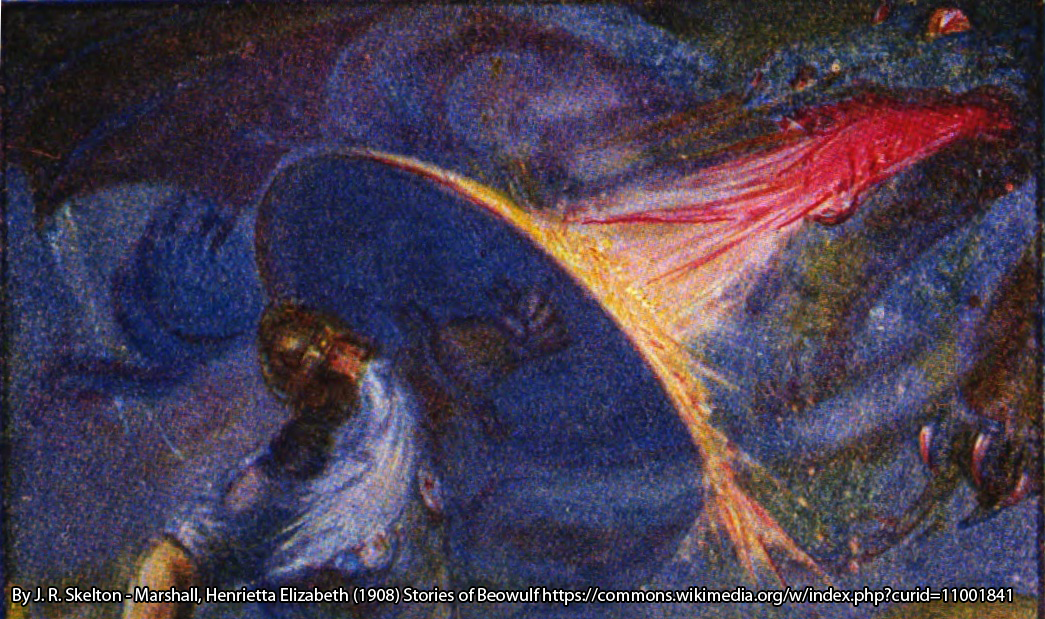


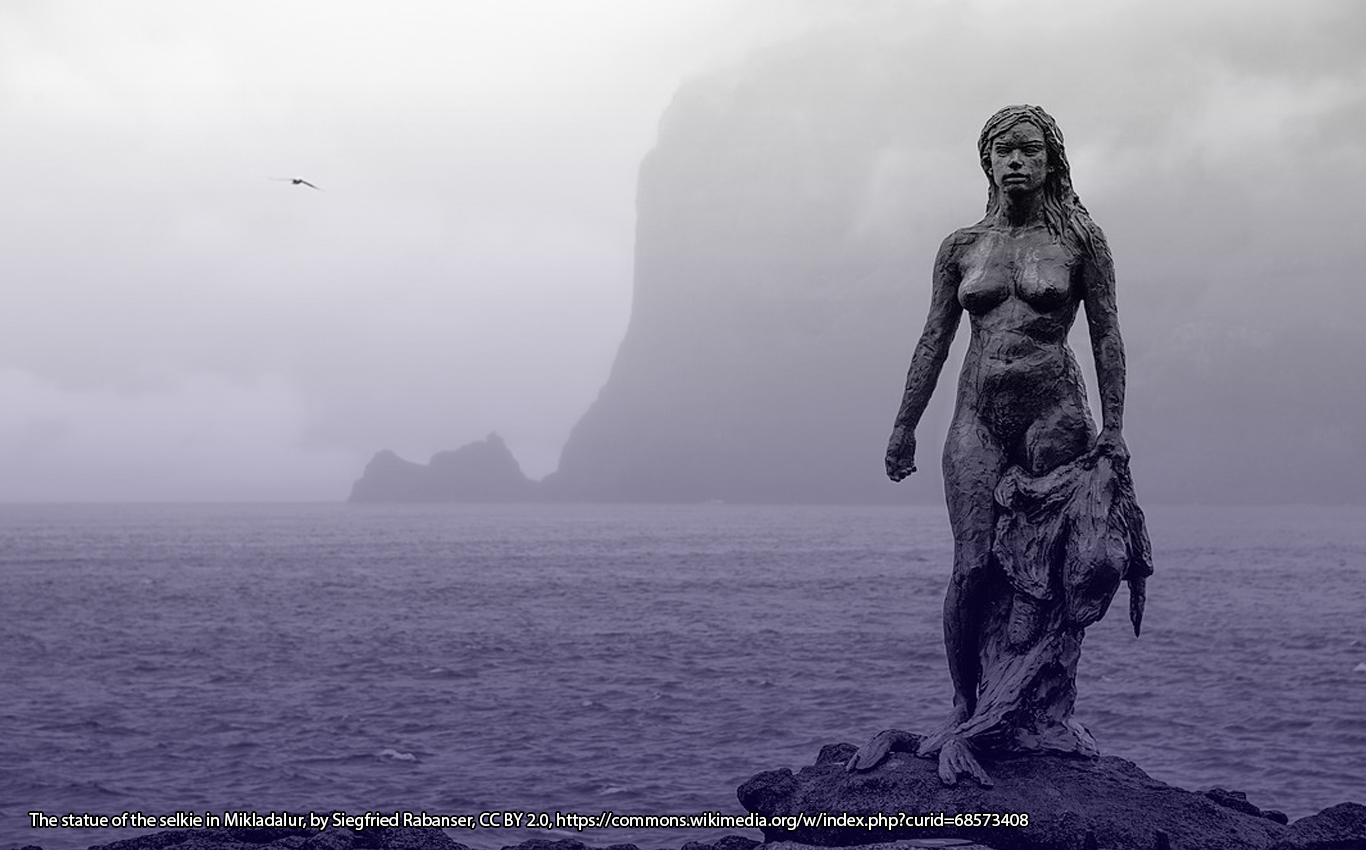


![Boadicea, leader of the rebellion against the Romans. By Joseph Martin Kronheim (1810–96)[1] - This file has been extracted from another file: Pictures of English History - Plates I to IV.jpg, Public Domain, https://commons.wikimedia.org/w/index.php?curid=12705208](https://folklorethursday.com/wp-content/uploads/2020/10/Pictures_of_English_History_Plate_IV_-_Boadicea_and_Her_Army.jpg)
